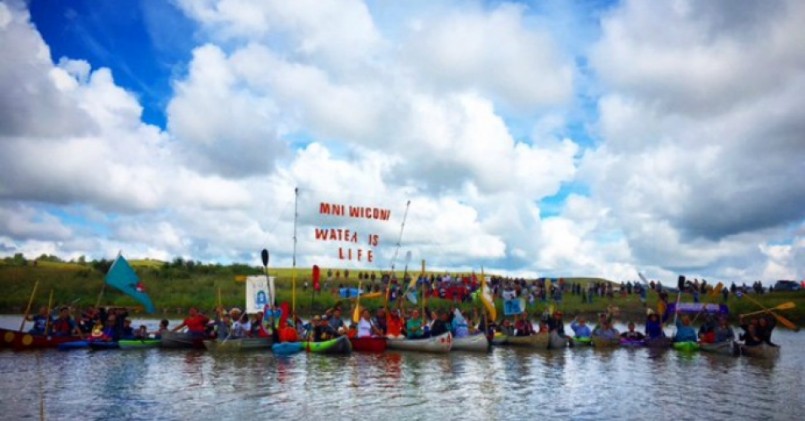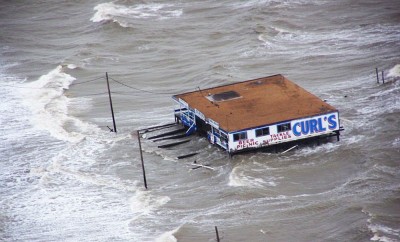Breaking News
Dakota Access Pipeline stopped, for now

Image: CommonDreams
Protesters celebrated on Sunday when the Army Corp of Engineers announced that it will be looking for an alternate route for the Dakota Access Pipeline that was to have crossed under Lake Oahe in North Dakota. The decision is a victory for both Native Americans and climate activists who have worked for months to stop the construction which they fear will adversely affect the local drinking water and disturb the sacred tribal sites of the Standing Rock Sioux reservation only a half-mile away.
For months now, both members of the Sioux tribe and those who support them have gathered to fight the proposed route of the pipeline. The protest site has become nearly a city unto itself as thousands have come together to camp out and protest construction.
The Army Corps says it plans to craft an Environmental Impact Statement with “full public input and analysis.”
Standing Rock Sioux Chairman Dave Archambault II said of the decision,
“I’m thankful that there were some leaders in the federal government that realized that something is not right even though it’s legal . . . This is something that will go down in history, and I know that it’s a blessing for all indigenous peoples.”
However, tribal leaders are cautious regarding the decision, fearing it may not be permanent. The Trump administration, who has said to be in support of the pipeline, will soon be taking over, and it is possible the decision could be overturned.
Energy Transfer Partners, the company behind the pipeline project, said in a statement,
“The White House’s directive today to the Corps for further delay is just the latest in a series of overt and transparent political actions by an administration which has abandoned the rule of law in favor of currying favor with a narrow and extreme political constituency.”
Speaking towards the future, Archambault II said,
“Treaties are paramount law and must be respected, and we welcome dialogue on how to continue to honor that moving forward. We are not opposed to energy independence, economic development, or national security concerns but we must ensure that these decisions are made with the considerations of our Indigenous peoples.”





0 comments